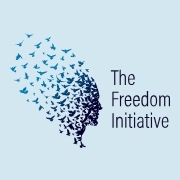The undersigned organizations condemn the unjust sentences handed down on 29 May by the Emergency State Security Felony Court in Case no. 1059 of 2021 (entered as no. 440 of 2018) against three prominent public opposition figures. Abdel Moneim Aboul-Fotouh, president of the opposition party Strong Egypt, was sentenced to 15 years in prison, while his deputy Mohamed al-Qassas, and Moez al-Sharqawi, the former vice-president of the Tanta University Student Union, were both sentenced to 10 years imprisonment. We likewise denounce the four-year prison sentence given to engineer Yahia Hussein Abdel Hadi, co-founder of the Civil Democratic Movement, on charges of spreading false news, on 23 May by the Emergency State Security Misdemeanor Court. We call on Egyptian president Abdel Fattah al-Sisi to decline to ratify these sentences and pardon all four individuals.
The exceptional courts that issued these sentences do not observe the minimum guarantees for a fair trial and their verdicts are not subject to appeal. The verdicts reflect the continuation of the Egyptian state’s policy of retaliation against opposition political figures and rights activists, invalidating its claims about engaging in a national dialogue with all political parties and their representatives. These latest verdicts make a mockery of the National Human Rights Strategy released by the Egyptian government in September and demonstrate the hollowness of its announced lifting of the state of emergency, so long as other repressive laws continue to be used to wrongfully imprison.
The verdicts are the latest in a series of escalating rights violations against Aboul Fotouh and al-Qassas, who have been detained since February 2018, in the wake of the Egyptian government’s security crackdown on the opposition shortly before presidential elections. Aboul Fotouh was arrested just days after expressing opinions critical of the Sisi government in televised interviews with the BBC, Al Jazeera, and al-Araby. Mohamed al-Qassas has been charged in a series of cases, in a process known as “recycling,” all on the basis of highly biased investigations. The charges and accusations are typically falsified and defy logic; for instance, Aboul Fotouh was accused of organizing meetings while he was being held in solitary confinement. Both Aboul Fotouh and al-Qassas have been held in pretrial detention beyond the legal two-year legal limit, and they were added to the state’s terrorism lists by the Court of Cassation earlier this year.
Aboul Fotouh recently suffered several severe cardiac episodes that require urgent medical attention. The most recent episode, according to his family, took place on 23 March after prison guards attacked him in retaliation for his request to file an official compliant about the Tora prison administration’s restrictions on visitation. Aboul Fotouh also suffers from an enlarged prostate, diabetes, nerve pain, and a slipped disc resulting from a fall in the police truck while he was being transported for interrogation.
In addition to engaging in willful medical neglect, the prison administration has held Aboul Fotouh and al-Qassas in total isolation in cells with poor ventilation despite the high temperatures. The authorities have denied them books, newspapers, and radios, while reducing their exercise time, and only allow prison visits to be conducted behind a glass barrier using a telephone.
Exceptional or emergency courts in Egypt have a propensity for reaching verdicts on dubious charges revolving around the “crime” of exercising one’s fundamental rights, such as freedom of expression. Lawyer and former parliamentarian Zyad Elelaimy and pro-democracy activist Alaa Abdel Fattah were sentenced to five years in prison; while four-year prison sentences were given
to journalists Hisham Fouad and Hossam Moanes, as well as human rights lawyer Mohamed al-Baqer and Mohamed Ibrahim (Oxygen), a human rights activist and blogger. Just days earlier, the same exceptional court sentenced Yahia Hussein Abdel Hadi, former spokesman for the Civil Democratic Movement, to four years in prison. Other political figures and rights defenders are awaiting similar judgments, among them researcher Patrick George Zaki and members of the Egyptian Coordination for Rights and Freedoms.
The effectiveness of any national dialogue is contingent on guarantees of the right to freely express critical and dissenting opinions, the cessation of reprisals and abuse against such critics, and an end to the years-long imprisonment of numerous peaceful dissidents, including politicians, and rights defenders, who are wasting away in prison as they are denied medical care, simply because they expressed opposition to the policies and practices of the Sisi government. The undersigned reiterate their condemnation and rejection of the unjust verdicts issued by the exceptional courts. We demand an end to the Egyptian state’s policy of imprisoning peaceful dissidents for exercising their fundamental rights and call for the immediate release of all those unjustly imprisoned, while holding the authorities responsible for their lives and physical and mental health.
Signatory organizations
- Cairo Institute for Human Rights Studies
- Egyptian Commission for Rights and Freedoms
- Nadeem Center
- Egyptian Front for Human Rights
- Center for Egyptian Women’s Legal Assistance
- Association for Freedom of Thought and Expression
- The Freedom Initiative
- Committee for Justice
منظمات حقوقية: نرفض الحكم المشين بحق السياسيين أبو الفتوح ومحمد القصاص ومعاذ الشرقاوي ويحيي حسين عبد الهادي ونطالب رئيس الجمهورية بإلغائها تستنكر المنظمات الحقوقية الموقعة ادناه الحكم المشين الذي أصدرته أمس 29 مايو محكمة جنايات أمن الدولة طوارئ في القضية رقم 1059 لسنة 2021 جنايات أمن دولة طوارئ، والمقيدة برقم 440 لسنة 2018 حصر أمن الدولة العليا، بحق السياسيين عبد المنعم أبو الفتوح رئيس حزب مصر القوية بالسجن 15 عاماً، ونائبه محمد القصاص ومعاذ الشرقاوي نائب رئيس اتحاد طلاب جامعة طنطا سابقًا بالسجن 10 أعوام. كما تستنكر الحكم الذي أصدرته محكمة جنح امن الدولة طوارئ في 23 مايو بحق المهندس يحيى حسين عبد الهادي أحد مؤسسي الحركة المدنية الديمقراطية بحبسه 4 سنوات في تهمة نشر أخبار كاذبة. وتطالب رئيس الجمهورية بعدم التصديق على هذه الأحكام والعفو الرئاسي عنهم.
وتؤكد المنظمات أن هذه الأحكام الصادرة عن محاكم استثنائية لا تراعي الحد الأدنى من ضمانات المحاكمة العادلة ولا يمكن الطعن على أحكامها؛ هو انعكاس لاستمرار نهج الدولة المصرية في التنكيل والانتقام من السياسيين، وكذب مزاعمها بشأن الحوار الوطني مع كافة الأحزاب السياسية وممثليها، وعدم جدوى الاستراتيجية الوطنية لحقوق الإنسان التي أصدرتها الحكومة المصرية في سبتمبر الماضي، والإعلان عن رفع حالة الطوارئ التي ما زالت مستمرة بقوانين قمعية أخرى، تضمن إهدار حياة الأبرياء في السجون.
يأتي هذا الحكم ضمن مجموعة من الانتهاكات الخطيرة والمتصاعدة بحق أبو الفتوح والقصاص، المحتجزين منذ فبراير 2018، إبان الحملة الأمنية التي شنتها السلطات المصرية قبيل الانتخابات الرئاسية ونالت من معظم المعارضين. إذ تم اعتقال أبو الفتوح بعد أيام من إعلانه أراء ناقدة للنظام الحالي في عدد من القنوات التليفزيونية منها BBC والجزيرة والعربي، بينما تم تدوير محمد القصاص على ذمة أكثر من قضية استنادًا لتحريات أمنية وهمية، واتهامه بتنظيم اجتماعات داخل محبسه (الانفرادي). هذا بالإضافة إلى تخطي كلاهما المدة القانونية للحبس الاحتياطي، وتأييد محكمة النقض إدراجهما على قوائم الإرهاب مطلع العام الجاري.
كان رئيس حزب مصر القوية عبد المنعم أبو الفتوح قد تعرض في الآونة الأخيرة لأزمات قلبية عنيفة تستوجب الرعاية الصحية الطارئة، آخرها -بحسب أسرته- في 23 مارس الماضي عقب اعتداء ضباط السجن عليه لمجرد طلبه تحرير محضر رسمي بإمتناعه عن الزيارات بسبب القيود المفروضة بحقه من إدارة سجن مزرعة طره. كما يعاني أبو الفتوح من أمراض تستوجب الرعاية الصحية منها؛ تضخم البروستاتا، وارتفاع السكر في الدم وآلام الأعصاب والانزلاق الغضروفي الذي أصابه نتيجة سقوطه داخل سيارة الترحيلات أثناء نقله للتحقيقات.
وبجانب الإهمال الطبي المتعمد بحق أبو الفتوح، تعمدت إدارة السجن حبس أبو الفتوح والقصاص انفراديًا في عزلة تامة، في زنزانة سيئة التهوية رغم ارتفاع درجات الحرارة وتقليص أوقات التريض، فضلًا عن منع دخول الكتب أو الصحف أو الراديو، وحرمانهما من الزيارة الطبيعية إلا من خلال العازل الزجاجي عبر التليفون.
أن هذه المحاكم الإستثنائية سبق وأصدرت أحكامًا مشينة باتهامات زائفة عقابًا على مجرد إبداء الرأي منها؛ الحكم الصادر بحق المحامي والبرلماني السابق زياد العليمي بالسجن 5 سنوات، والحكم على الصحفيين هشام فؤاد وحسام مؤنس بالسجن 4 سنوات. والحكم على الناشط السياسي علاء عبدالفتاح بالسجن 5 أعوام والحقوقي محمد الباقر ومحمد رضوان (أكسجين) بالسجن 4 سنوات. وقبل أيام أصدرت هذه المحاكم الاستثنائية حكمها بحق المتحدث باسم الحركة المدنية الديمقراطية يحيى حسين عبدالهادي بالسجن 4 سنوات، بينما ينتظر سياسيون وحقوقيون آخرون أحكامًا من المحاكم نفسها، منهم الباحث باتريك جورج زكي، وأعضاء من التنسيقية المصرية للحقوق والحريات.
المنظمات الحقوقية الموقعة أدناه تجدد استنكارها ورفضها لهذه الأحكام الصادرة عن محاكم استثنائية. وتطالب بالإفراج الفوري عن المحتجزين بموجب أحكامها، وتُحمل السلطات المصرية المسئولية عن حياتهم وصحتهم النفسية والجسدية.
أن فعالية أي حوار وطني مرهونة بكفالة الحق في التعبير الحر عن الرأي الناقد والمعارض، ووقف أعمال الانتقام والتنكيل بأصحابه، ووضع حد للسنوات المهدرة في السجون على خلفية اتهامات مختلقة للانتقام من السياسيين والمعارضين والحقوقيين لمجرد معارضتهم سياسات النظام الحالي، والتوقف عن الزج بالمزيد منهم في السجون.
المنظمات الموقعة:
- مركز القاهرة لدراسات حقوق الإنسان
- المفوضية المصرية للحقوق والحريات
- مركز النديم
- الجبهة المصرية لحقوق الإنسان
- مؤسسة قضايا المرأة
- مؤسسة حرية الفكر والتعبير
- كوميتي فور جستس
- مبادرة الحرية




